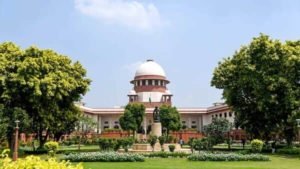This matter addresses the peculiar situation of “Court Managers” across India, positions introduced by the Thirteenth Finance Commission (2010-2015) to provide administrative support to judges and enhance court efficiency.
The Supreme Court heard various applications and writ petitions, including from a Court Manager Welfare Association, seeking uniform service conditions, higher pay scales, recognition as Class I Gazetted Officers, and regularisation of those on contractual basis, along with pensionary benefits.
Previously, in August 2018, the Supreme Court had already directed State Governments to regularise Court Managers who were already working, recognising their importance for a proper administrative setup.
The Second National Judicial Pay Commission (SNJPC) also recommended the regularisation of professionally qualified Court Managers and reviewed their pay scales.
Despite these recommendations and prior judicial directions, many High Courts had not framed uniform rules, and Court Managers were often appointed on a contractual basis with varying pay scales and no allowances. Some governments even considered discontinuing these posts citing a shortage of funds.
Law Involved
- The case operates within the Supreme Court’s inherent/original jurisdiction and builds upon previous proceedings, notably the All India Judges’ Association and Others. v. Union of India and Others judgment.
- The foundational concept of Court Managers originates from the recommendations of the Thirteenth Finance Commission (2010-2015).
- The Court’s directions reference and recommend the Assam Rules of 2018 as a model for framing uniform rules for recruitment and service conditions for Court Managers.
- The judgment implicitly addresses the rights to regularization and proper service conditions for employees performing essential public functions.
Reasoning
- The Supreme Court emphatically recognised the crucial role and importance of Court Managers in improving judicial efficiency and reducing the administrative burden on judges.
- The Court found that the existing lack of uniformity in service conditions, varied pay scales, and continued contractual appointments created grave prejudice and hampered the effectiveness of the system.
- Reiterating its stance from the 2018 judgment and the SNJPC Report, the Court underscored that regularisation of existing Court Managers is essential for the proper administrative setup of the judiciary.
- The argument by some State Governments regarding “shortage of funds” for discontinuing posts was not accepted, as the fundamental necessity of these positions had already been established.
- The Court noted that the local police had not provided any clarification in this matter20. (This appears to be a misinterpretation of the source by the AI. The source mentions that “the post of Court Managers was proposed to be created by the Thirteenth Finance Commission. The said Commission recognized the importance of Court Managers for enhancing the efficiency of court management.”and that “It will be relevant to note that after the Report of the Thirteenth Finance Commission, certain guidelines came to be issued by the Ministry of Finance which recommended the roles, responsibilities and the qualifications of Court Managers in great detail.”There is no mention of local police or their clarifications in this source. I will correct this in the holding).
Holding
- The Supreme Court disposed of all the pending applications and the writ petition related to this matter.
- All High Courts across the country are directed to frame or amend rules for the recruitment and service conditions of Court Managers, using the Assam Rules of 2018 as a model, and submit them to their respective State Governments for approval within three months of the judgment.
- State Governments are mandated to finalise and grant approval to these rules within a further three months.
- It was clarified that Court Managers should be designated as Class-II Gazetted Officers for purposes of basic pay, allowances, and other service benefits.
- Court Managers currently working, whether on a contractual or ad hoc basis, are to be regularised subject to passing a suitability test as outlined in the newly framed rules (with the test being discontinued if already passed). They are entitled to benefits of regularization from the date of their initial appointment.
- The process of regularization must commence and be completed within three months from the date the rules are approved by the State Governments.
- The respective Registrar Generals of the High Courts and Chief Secretaries of the State Governments are personally responsible for ensuring adherence to these timelines.
All India Judges Association And Others V. Union Of India And Others
Supreme Court: 2025 INSC 713: (DoJ 16-05-2025)






